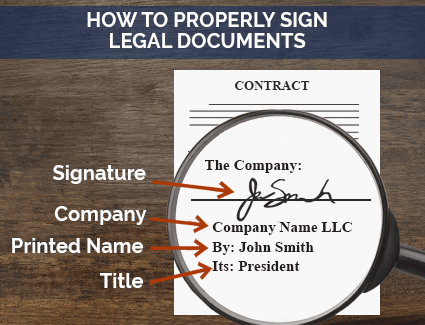How To Create A Nonprofit In Maryland
How to Start a Nonprofit in Maryland
There are many good reasons tostart a nonprofit in Maryland, but knowing the first few steps to take can be challenging.
We'll help you start a nonprofit and complete your501(c)(3) application in our How to Start a Nonprofit in Maryland guide below.
Or, simply use a professional service:
Incfile (Starting at $0 + State Fees)

Starting a 501(c)(3) Nonprofit in Maryland is Easy
To start a 501(c)(3)tax-exemptnonprofit organization in Maryland, you must firststart aMaryland nonprofit according to the rules of the state and thenapply for501(c)(3) status with the IRS.
Learn more about 501(c)(3) eligibility in our What is a 501(c)(3) guide.
Toform a 501(c)(3) nonprofit organization, follow these steps:
Step 1: Name Your Maryland Nonprofit
Step 2: Choose Your Registered Agent
Step 3: Select Your Board Members & Officers
Step 4: Adopt Bylaws & Conflict of Interest Policy
Step 5: File the Articles of Incorporation
Step 6: Get an EIN
Step 7: Apply for 501(c)(3)
Step 1: Name Your Maryland Nonprofit
Choosing a name for your organization is the first and most important step in starting your nonprofit corporation. Be sure to choose a name that complies with Maryland naming requirements and is easily searchable by potential members and donors.
To learn more, read our How to Name a Nonprofit in Maryland guide.
1. Follow the naming guidelines:
The name of your organization must include one of the following words or its abbreviation: "Company," (if it's not preceded by the word/symbol "and"), "Corporation," "Incorporated," "Limited."
You can read the official guidelines for the complete rules on naming a Maryland-based organization.
2. Is the name available in Maryland?Make sure the name you want isn't already taken by doing a name search on the State of Maryland website.
3. Is the URL available? We recommend that you check to see if your business name is available as a web domain. Even if you don't plan to make a business website today, you may want to buy the URL in order to prevent others from acquiring it.
Registered your domain name? Next, we suggest choosing a business phone service to help your nonprofit build authority and trust. Nextiva is our first pick due to its affordability and top-notch customer support. Try Nextiva today.

Step 2: Choose a Registered Agent in Maryland
Your nonprofit is required to nominate a Maryland registered agent for your organization.
What is a Registered Agent? A registered agent is an individual or business entity responsible for receiving important legal documents on behalf of your business. Think of your registered agent as your business' point of contact with the state.
Who can be a Registered Agent? A registered agent must be a resident of Maryland or a corporation, such as a registered agent service, authorized to transact business in Maryland. You may elect an individual within the company including yourself.
Step 3: Select your Directors & Officers
The directors of an organization come together to form a board of directors. This board of directors is responsible for overseeing the operations of the nonprofit.
The president, secretary, and other members of nonprofit who have individual responsibilities and authorities are known as officers.
The organization structure of your nonprofit in Maryland MUST include:
- At least 3 directors not related to each other
- A president
- A secretary
- A treasurer
NOTE:One person may hold two or more officer positions, however, if a document requires signatures of two officers, it must be signed by two different people.
To learn more about electing a Maryland nonprofit board of directors, read our full guide.
Step 4: Adopt Bylaws & Conflict of Interest Policy
To be eligible to apply for 501(c)(3) status, your nonprofit is required to have the following two documents:
- Bylaws
- Conflict of interest policy.
What are Bylaws? Bylaws are the rules outlining the operating procedures of the nonprofit.
What is a Conflict of Interest Policy? A Conflict of Interest Policy is the collection of rules put in place to ensure that any decisions made by the board of directors or the officers benefits the nonprofit and not individual members.
NOTE: The bylaws and conflict of interest policy must be adopted by the nonprofit during its first organizational meeting where the directors and officers are officially appointed.
Step 5: File the Maryland Articles of Incorporation
To register your nonprofit, you will need to file the Articles of Incorporation with the State of Maryland.
To ensure that your nonprofit is eligible to apply for 501(c)(3) status, in the Articles of Incorporation you must explicitly state the following:
1. Purpose:
In order to qualify for 501(c)(3) status, the organization's purpose must explicitly be limited to one or more of the following:
Charitable, Religious, Scientific, Educational, Literary, Fostering national/international amateur sports competition, Preventing cruelty to animals/children, testing for public safety
2. Dissolution:
You must explicitly state what the assets of the organization will be used for, and what will happen to the assets if the organization is dissolved.
To be eligible for 501(c)(3) status, the assets of your organization must only ever be used for purposes approved under section 501(c)(3).
Section 5 of this sample IRS document provides an example of these provisions required for 501(c)(3) eligibility.
Option 1: File online with the State of Maryland.
File Online
- OR -
Option 2: File by mail.
Download Form
State Filing Cost: $170
Mail to:
State Department of Assessments and Taxation
Charter Division
301 W. Preston Street; 8th Floor
Baltimore, MD 21201-2395

Step 6: Get an EIN
What is an EIN? The Employer Identification Number (EIN), or Federal Tax Identification Number, is used to identify a business entity such as your nonprofit corporation. It is essentially a social security number for your organization.
Why do I need an EIN? An EIN is required for the following:
- To open a business bank account for the company
- For Federal and State tax purposes
- To hire employees for the company
How do I get an EIN? An EIN is obtained from the IRS (free of charge) by the business owner after forming the company. This can be done online or by mail. Check out our EIN Lookup guide for more information.
Step 7: Apply for 501(c)(3) Status
Before a nonprofit can apply for 501(c)(3) status it must,
- Elect at least 3 directors not related to each other
- File the Articles of Incorporation with the required provisions (As covered in Step 5)
- Adopt the bylaws and conflict of interest policy
- Have an EIN number
Once these four conditions have been met your nonprofit can apply for 501(c)(3) tax-exempt status by filing Form-1023 online.
If your application is approved, the IRS will send you a determination letter stating that your organization is exempt from federal taxes under section 501(c)(3).
FAQ: Starting Your Nonprofit
When should an organization apply for federal tax exemption? 
Form 1023 must be filed within 27 months from the end of the first month your organization was created.
How long will it take for the IRS to process Form 1023/1023-EZ? 
Soon after sending your application you should receive an acknowledgment of receipt of your application.
If your application is simple and complete, IRS will send your determination letter within 180 days for Form 1023
If you have not heard from them by that time you can call (877) 829-5500 to inquire about your application.
Find out which nonprofit formation service is the best for you in our review on Startup Savant.
Important Steps After Forming a Nonprofit
Business Banking
1. Opening a business bank account:
- Separates your personal assets from your company's assets, which is necessary for personal asset protection.
- Makes accounting and tax filing easier.
To open a bank account for your nonprofit corporation you will typically need the following:
- The EIN for the nonprofit
- A copy of the nonprofit's bylaws
- A copy of the Articles of Incorporation
Read our Best Small Business Banks review to find the right bank for your nonprofit's needs.
2. Getting a business credit card:
- Helps you separate personal and business expenses.
- Builds your company's credit history, which can be useful to raise capital later on.

3. Hiring a business accountant:
- Prevents your business from overpaying on taxes while helping you avoid penalties, fines, and other costly tax errors
- Makes bookkeeping and payroll easier, leaving you with more time to focus on your growing business
- Helps effectively manage your business funding and discover areas of unforeseen loss or extra profit
For more business accounting tools, read our guide to the best business accounting software.

Get Insurance
Business insurance helps you manage risks and focus on growing your business.
The most common types of business insurance are:
- General Liability Insurance: A broad insurance policy that protects your business from lawsuits. Most small businesses get general liability insurance.
- Professional Liability Insurance: A business insurance for professional service providers (consultants, accountants, etc.) that covers against claims of malpractice and other business errors.
- Workers' Compensation Insurance: A type of insurance that provides coverage for employees' job-related illnesses, injuries, or deaths.

Recommended:Inform your employees about their rights and stay compliant by posting labor law posters in your workplace.
Build a Business Website
Creating a website is a big step in legitimizing your business. As a nonprofit, your website will be the primary way to share your organization's mission and story to supporters. Your website should be a great resource for anyone interested in your nonprofit's upcoming events, goals, and news to help advance your cause.
Some may fear that creating a business website is out of their reach because they don't have any website-building experience. While this may have been a reasonable fear back in 2015, web technology has seen huge advancements in the past few years that makes the lives of small business owners much simpler.

Properly Sign Legal Documents
Improperly signing a document as yourself and not as a representative of the business can leave you open to personal liability.
When signing legal documents on behalf of your nonprofit, you could follow this formula to avoid problems:
- Formal name of your organization
- Your signature
- Your name
- Your position in the business as its authorized representative
See the image below for an example:

This ensures that you are signing on behalf of your nonprofit and not as yourself.

State of Maryland Quick Links
- IRS - Information for Charities & Nonprofits
- IRS - Required Provisions for Organizing Documents
- IRS - 990 Series for Tax-Exempt Organizations
- IRS - Applying for Tax-Exempt Status
- IRS - 501(c)(3) Compliance Guide
- Small Business Administration - License and Permits
- Maryland Attorney General - Doing Business in Maryland
- Maryland Attorney General - Nonprofits
Maryland Business Resources
Have a Question? Leave a Comment!
How To Create A Nonprofit In Maryland
Source: https://howtostartanllc.com/form-a-nonprofit/maryland-nonprofit
Posted by: hamiltonwathre.blogspot.com

0 Response to "How To Create A Nonprofit In Maryland"
Post a Comment